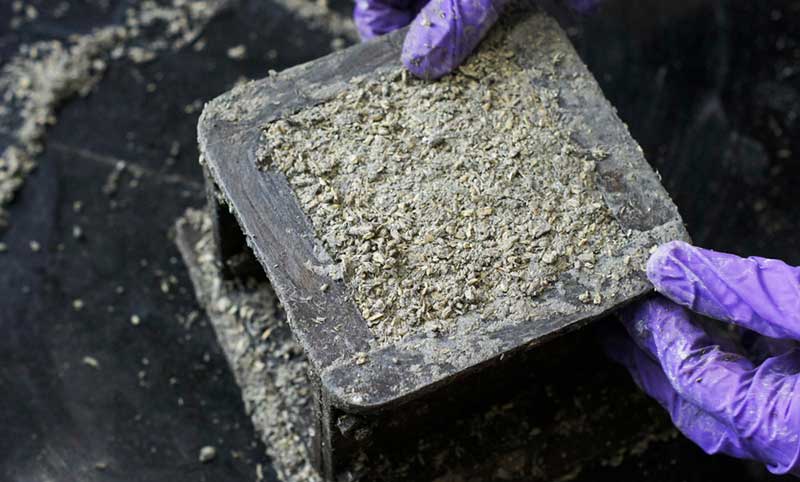As sustainability takes center stage in business operations, hemp-based building materials have emerged as a groundbreaking solution for industries seeking to reduce their environmental footprint. For the cannabis industry and its vendors, these materials offer an exceptional opportunity to integrate eco-conscious practices while enhancing operational efficiency.
From cultivation facilities to retail spaces, hempcrete, hemp fiberboard, and hemp insulation are versatile, sustainable options that meet the unique needs of cannabis businesses. Here’s a closer look at these innovative materials and how they transform the cannabis landscape.
What Are Hemp-Based Building Materials?
Hemp-based building materials are derived from the stalks and fibers of the hemp plant, combined with other natural components to create durable and eco-friendly alternatives to traditional construction materials. These products include:
- Hempcrete: A lightweight biocomposite used for insulation and infill.
- Hemp Fiberboard: An engineered wood product for construction and design.
- Hemp Insulation: A natural alternative to conventional fiberglass or mineral wool insulation.
1. Hempcrete: The Carbon-Negative Building Block
Hempcrete is made from hemp hurds mixed with lime and water. This non-structural material is often used in walls, floors, and roofs within a wooden frame.
Benefits for the Cannabis Industry:
- Climate Control for Grow Facilities: Hempcrete’s insulating properties stabilize temperature and humidity, reducing reliance on energy-intensive HVAC systems.
- Carbon Sequestration: Hempcrete absorbs CO₂ during its lifecycle, making it a carbon-negative material.
- Safety Features: Naturally fire-resistant and pest-proof, hempcrete enhances safety in warehouses and storage facilities.
Challenges:
- Hempcrete requires a supportive frame, which may add to construction costs.
- Limited supply chains can create hurdles for widespread adoption.
2. Hemp Fiberboard: Durable and Sustainable
Hemp fiberboard is a wood-like material that compresses hemp fibers with a resin binder. It’s an eco-friendly alternative to MDF and particleboard.
Benefits for the Cannabis Industry:
- Retail Design: Ideal for creating shelves, counters, and displays that showcase sustainability.
- Durability: Hemp fiberboard resists warping and is stronger than traditional particleboard.
- Renewable Resource: Hemp grows faster than trees, requiring fewer resources and promoting environmental conservation.
Challenges:
- Some products may use synthetic resins, reducing their eco-friendliness.
- Costs and availability vary depending on production scale and location.
3. Hemp Insulation: Non-Toxic and Effective
Hemp insulation is crafted from hemp fibers blended with natural binders. It’s a safe and sustainable replacement for traditional insulation materials.
Benefits for the Cannabis Industry:
- Air Quality: Non-toxic hemp insulation ensures cleaner air in growing facilities, protecting plants and workers.
- Thermal Efficiency: Excellent temperature regulation reduces energy consumption.
- Moisture Resistance: Breathable fibers prevent mold growth, a common concern in cultivation environments.
Challenges:
- Initial costs are higher than conventional insulation.
- Proper installation is essential to maximize efficiency.
Why Should the Cannabis Industry Care?
For cannabis businesses, adopting hemp-based building materials offers numerous advantages:
- Eco-Friendly Branding: Demonstrating a commitment to sustainability resonates with eco-conscious consumers and stakeholders.
- Reduced Carbon Footprint: Hemp’s carbon-sequestering properties align with global environmental goals.
- Regulatory Benefits: Governments increasingly offer incentives for green construction practices.
Vendors, too, can leverage this trend by providing innovative materials and consulting services to cannabis businesses, positioning themselves as leaders in sustainability.
Practical Applications in Cannabis Operations
Hemp-based building materials can be used across the cannabis supply chain:
- Grow Facilities: Hempcrete and insulation regulate temperature and humidity, ensuring optimal plant conditions.
- Retail Spaces: Hemp fiberboard creates durable and sustainable fixtures that appeal to environmentally aware consumers.
- Warehouses: Insulating walls and roofs with hemp materials protect products and reduce energy costs.
Opportunities for Vendors
Vendors have a key role in driving the adoption of hemp-based materials:
- Supply Pre-Fabricated Materials: Offer ready-to-install hempcrete blocks, panels, and fiberboards.
- Consult on Green Practices: Guide cannabis businesses in integrating sustainable materials into their operations.
- Foster Partnerships: Collaborate with contractors and architects to promote hemp-based solutions.
Challenges and Considerations
While the benefits of hemp-based materials are clear, some challenges remain:
- Higher Upfront Costs: Sustainable materials often come with a premium price, though they provide long-term savings.
- Evolving Regulations: Building codes for hemp materials are still developing, requiring businesses to navigate complex compliance requirements.
- Awareness and Education: Many in the industry are unaware of hemp’s potential, emphasizing the need for advocacy and education.
Building a Sustainable Future with Hemp-Based Materials
Hemp-based building materials like hempcrete, hemp fiberboard, and hemp insulation transform the cannabis industry by offering sustainable, efficient, and versatile solutions. By integrating these materials into their operations, cannabis businesses can reduce their environmental impact, enhance their brand reputation, and optimize their facilities.
This is a prime opportunity for vendors to lead the way in sustainability, providing innovative products and expertise that help cannabis businesses thrive. As demand for eco-conscious practices grows, hemp-based materials are poised to become a cornerstone of the cannabis industry’s green revolution.




